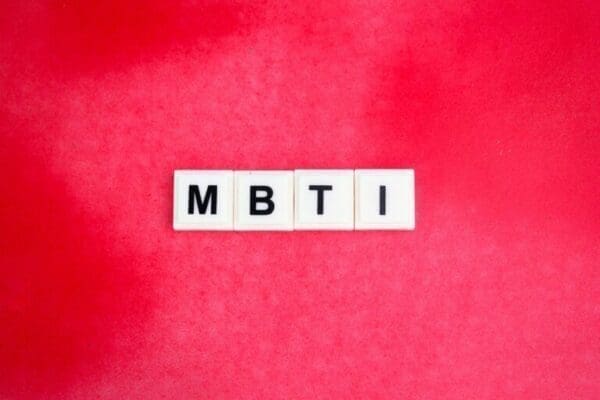‘The Thinker’
INTPs are perhaps the most intellectually profound of all the types.”
– Isabel Briggs Myers, Gifts Differing
INTP is an acronym that represents Introverted, Intuitive, Thinking, and Perceiving, which are four fundamental personality traits based on the work of C.G. Jung. While others may perceive INTPs as withdrawn and private, they can become very enthusiastic and excited when discussing a topic that interests them.
INTPs are thinkers who enjoy contemplating ideas and understanding how things work. They are interested in philosophy, logic, and design, always seeking to grasp the fundamental principles of life. They may seem a bit distant because they spend a lot of time lost in thought, analysing, and making connections. To them, life is like a never-ending exploration of the mysteries of the universe.
What is an INTP Person Like?
INTPs have a cool exterior but are internally passionate about logic, analysis, and innovation. They are attempting to construct complex systems of understanding to unify the principles they have observed in their environments. Their minds are complex and active, and they will go to great mental lengths to come up with creative solutions to intriguing problems.
The INTP is typically non-traditional, preferring to reason out their own unique way of doing things rather than following the crowd. The INTP is sceptical of assumptions and conventions, and they are eager to dismantle ideas that others take for granted. INTPs are merciless in their analysis of concepts and beliefs, and they hold very little sacred.

>> Advanced Grow Coaching Cards <<
>> Shop on Amazon <<
How Others See Them
The mind of an INTP is incredibly active, and their inward focus can lead them to overlook trivial things such as home décor or appropriate clothing. They do not engage in small talk and can become highly enthusiastic while discussing science, maths, computers, or larger theoretical matters. The thinker is more concerned with the theory behind reality, and therefore, reality often holds only momentary interest for them.
INTPs are skilled at using precise language to convey complex ideas. They place a high value on intellectual rigour and often identify inconsistencies in reasoning, even during casual conversations. While their focus on logic can sometimes cause them to overlook social norms and unintentionally offend others, they also subject their own beliefs and values to scrutiny, which can be perceived as challenging to some.
INTP is one of the less common types in the population, especially for women. Among women, INTP is the fourth-rarest type (after INTJ, ENTJ, and INFJ). INTPs make up:
- 3% of the general population
- 5% of men
- 2% of women
How Rare is a Female INTP?

The INTP is a rare Myers Briggs personality type, estimated to make up only 3-5 per cent of the population. Being a female INTP makes me even rarer, as they say only 2 per cent of women are this type.
Sticky Learning ® is 7 times more effective than 1-day training courses. Plus, you will get a Chain of Evidence proving your Return on Investment. Discover soft skills training that changes behaviours long term.

Assertive Logician (INTP-A) vs. Turbulent Logician (INTP-T)
Assertive Logicians (INTP-A) and Turbulent Logicians (INTP-T) are more alike than different due to their four shared Logician traits. Their Identities, however, add nuance to the similarities, resulting in two subtypes within the personality type.
A strong desire to change and improve to correct perceived deficiencies is one of the Turbulent personality trait’s defining characteristics. Turbulent Logicians are no exception. However, for this Thinking/Prospecting personality type, each new piece of knowledge has the potential to act as a compass, sending them off in a new direction in search of something better, something to improve. This aspect of the Turbulent trait is amplified by the basic qualities of the imaginative growth-seeking Logician.
Assertive Logicians are more likely than all other personality types to say they are rarely upset by others. They are also less likely to hold a grudge after an argument than Turbulent Logicians. One feature of the Assertive Identity is that it is not influenced by the opinions of others. These Logicians may frequently act without the knowledge or consent of others. “It’s easier to ask for forgiveness than permission,” they might say from time to time. This enables these individuals to pursue their life goals in a more independent and possibly more streamlined manner.
What Are They Good at?

#1- Analytical Genius
INTPs bring intellectual prowess to any environment in which they find themselves beneath the quiet surface. They are quick thinkers and logical. Others may not realise it because so much happens inside their head, but this personality type excels at analysing connections between seemingly random pieces of information and finding flawless explanations to problems that perplex most other personality types.
#2- Objective
INTPs are admired for their unwavering pursuit of truth, objectivity, and comprehension. They make this their life’s goal and devote their efforts to rooting out errors and eliminating inconsistencies. They do this not only for their enjoyment but also as their primary contribution to the world in whatever field they may be in.
#3- Imaginative
INTPs spend a lot of time thinking about theory, how to understand and explain difficult concepts, and how systems and products work and can be improved. They naturally see things that others do not because they have active imaginations that are fixated on future potential and possibility.
#4- Enthusiastic
Others may perceive the INTP as private and withdrawn, but when a topic piques their interest, they can be very enthusiastic—even excited—about discussing it. They are entertaining to be around because of their excitement. They are eager to express their imaginative sense of humour in the right company, and they enjoy being playful with people they can trust.
What Are Their Weaknesses?

#1- Uncertainty
Despite their intellectual prowess, INTPs frequently live in fear of failure, concerned that they will miss some critical aspect of their theory, idea, or invention. This makes them self-conscious and causes them to waste time and energy second-guessing themselves.
#2- Absent-Mindedness
INTPs aren’t known as “absentminded professors” for nothing. At their worst, they are disorganised and scattered. They are intellectual and high-minded, but they become engrossed in their thoughts and fail to deal with the low-level tedium of the here and now, such as bills or deadlines. They may fail to conform to even the most basic societal expectations.
#3- Condescension
One of the INTPs’ major flaws is their tendency to be condescending and critical of their opponents or those who don’t catch on as quickly as they do. Their constant pursuit of truth and objectivity, though admirable, can also provoke brutality and impatience as they drive home their perspective. This is especially dangerous in relationships where logic does not always reign supreme.
#3- Insensitivity
INTPs can get into trouble because of their proclivity to prioritise mental activity over the needs of others. They live comfortably in the realm of their imaginations, which can lead to a variety of issues, not the least of which is that they can become so engrossed in their theories and abstractions that they lose sight of any kind of emotional consideration. Their emphasis on ideas and logic, rather than personal considerations, can easily offend.
Growth and Development
INTPs should do the following to reach their full potential:
1. Improve Your Emotional Intelligence
Though INTPs make excellent friends and partners, they are not particularly warm or sensitive to others’ feelings and emotional cues. While emotional receptivity and responsiveness do not come naturally to people of this type, focusing on key behaviours that make others feel heard and cared for will increase the INTP’s ability to relate and connect.
2. Use the Power of Relationships to Your Advantage
INTPs like being alone, but they need important relationships to do their best. If they’re stuck on a hard problem, they might become even more isolated. Even if they don’t care about having a lot of friends, making connections with people will help them be more successful and happy.
3. Invite Others to Join You
INTPs can easily become rutted or caught in their blind spots, and because they spend so much time alone, they may not regularly enjoy the input of others that can help them get back on track. They not only serve their relationships by allowing others into their inner worlds, but they also gain valuable feedback that can help them clarify their high-level ideas and make them understandable and useful to a wider audience.
4. Consider the Situation Practically
This could be a challenge because INTPs are not typically utilitarian or pragmatic. This does not imply that they do not value efficiency, but rather that they believe in the value of thinking and experimenting for the sake of thinking and experimenting, even if there is no practical value or outcome attached to it. While we need people who are willing to take on dream projects and experiments simply because they are fun, employers may be less understanding. They should take a step back and look at their projects from a practical standpoint. Will this concept work? Does it make a difference? Is this a product that people would buy? Is it useful in any way?
INTP Relationships

-
INTPs in Love
INTPs are self-sufficient and astute partners. They enjoy intellectual conversation and seek an intelligent partner who can match their ability to think critically.
INTPs have a low tolerance for the mundane aspects of life and may disregard traditional relationship rituals. They are accepting of individual preferences but will rarely do something simply because they “should.”
When they cannot understand the logic behind their behaviour, they may find others difficult to deal with. When things become too emotional for them, they may withdraw into their world of thoughts and ideas.
INTPs prefer to have plenty of space in their relationships to explore their thoughts, ideas, and interests. They seek a partner who recognises their ingenuity and problem-solving abilities, as well as one who understands their need for autonomy.
-
Do INTPs Fall in Love Easily?
INTPs fall in love gradually. They are picky about partners and will know if they want to spend more time with someone, but they usually do not fall in love for a long time. They enjoy figuring out things, including their romantic interests.
-
Who Should INTP Marry?
ENTJs, ENTPs, and ESTJs are the best matches for an INTP. ENTJs and ENTPs are leaders who can handle some of the stress and decision-making that come with relationships better than INTPs.
-
Who is an INTP’s Bestfriend?
INTPs and ENTJs are both members of the NT (Intuitive-Thinking) personality type, also known as the Intellectuals. These two are likely to have a great time as friends because they can have a lot of passionate conversations about deep topics.
-
INTPs as Parents
INTPs encourage competence and independent problem-solving as parents. They frequently do not easily tune in to their children’s emotions, but will enthusiastically assist them in resolving a complex dilemma.
INTPs are typically involved in their projects or ideas and do not enjoy the mundane, day-to-day tasks of caring for children. As a result, the Thinker parent may appear distant to their children at times, but their true joy in parenting comes from sharing exciting ideas and concepts with young minds.
INTP Jobs
The INTP at Work
At work, they are driven to solve complex problems in novel and creative ways. Thinkers want to thoroughly analyse systems and ideas to gain a thorough understanding of them, and they enjoy designing creative solutions to highly abstract problems.

INTPs are less interested in organisational traditions and prefer to forge their path to innovation. They despise being constrained by bureaucracy and rules, and are frequently more concerned with the theoretical soundness of their ideas than with their practical applications.
They work best alone or with a small group of colleagues. Also, they are regarded as smart, competent, and logical.
An ideal organisation for them is adaptable and non-traditional and values creativity over conformity. A job that allows them to address complex theoretical or technical problems with creative, novel solutions is ideal.
Top Careers for the INTP
INTPs are first and foremost thinkers, and this quality can be seen in their choice of careers. Although INTPs can be found in a wide variety of fields, a happy and satisfied INTP is invariably found in a career that allows them to use their intellect, analyse concepts, and think deeply.
INTPs have an innovative nature and are often drawn to cutting-edge fields such as technology, engineering, and the sciences. Although INTPs overall are a rare breed, visit an area like California’s Silicon Valley or a tech company like Google or Apple and you’ll find that nearly every other person seems to be an INTP. This type naturally thrives in the challenging, unpredictable world of tech.
Many INTPs are creative and seek an artistic bent in their career. They are particularly drawn to artistic fields with a touch of science or technology, for instance, architecture or graphic design.
Although INTPs typically prefer careers that have them working with ideas more than people, a contingent of INTPs consider human problems the ultimate frontier of intellectual inquiry. Thus, you find some INTPs in careers that allow them to study the human experience, including psychology and other social sciences.
Top Careers for the INTP Include:
- Computer Network Architect
- Aerospace Engineer
- Architect
- Director
- Lawyer
INTP Famous People
Famous INTPs include:
- Albert Einstein
- Thomas Jefferson
- Kristen Stewart
- Rene Descartes
- Charles Darwin
- Marie Curie
- Socrates
- Abraham Lincoln
INTP Characters
1. Sherlock Holmes (Sherlock)

Sherlock Holmes is an INTP. He values cold, hard facts and is incredibly logical. Because accepting false information feels wrong to them, including Sherlock, on many levels, he carefully examines new information for validity and has an internal framework of knowledge. Sherlock is constantly trying to figure out the what, how, and why of things. He is constantly probing, both himself and other people.
2. Teresa Agnes (Maze Runner)
Teresa Agnes was an INTP. They are technologically astute and intelligent. They are capable of solving issues logically. Though occasionally they might choose to betray others. Teresa Agnes was an INTP who, even though it led to betraying people, made a logical choice to help the rest of the world. Even though it wasn’t the popular choice, she was able to make the best choice for everyone thanks to her logical, level-headed reasoning.
INTP Anime Characters
1. L Lawliet – Death Note
L expresses the INTP personality type’s intellectual but disorganised nature. People tend to judge him prematurely because of his dishevelled appearance and lack of tact, but his analytical abilities and strong powers of deduction are unparalleled. L has a creative, clever sense of humour and the ability to connect the dots in complex situations, as is typical of INTPs.
2. Gowther from Seven Deadly Sins
INTPs will most likely identify with Gowther’s inadvertently offending people with his purely logical calculations. His analytical, speculative nature, as well as his thirst for knowledge and understanding, will be familiar to any INTP. Unfortunately, his attempts to put his theoretical knowledge into practice frequently result in blunders. Despite the setbacks, he continues to try.
INTP vs INTJ
INTPs and INTJs are both Introverted, Intuitive, and Thinking personalities who prefer to act independently, look ahead and make logical decisions. However, INTPs dislike planning too far ahead, whereas INTJs prefer to stick to rules and schedules.
The Takeaway

To sum it up, INTPs are curious thinkers who love exploring life’s mysteries with a passion for philosophy and figuring things out. They’re like perpetual investigators, always eager to unravel the puzzles that capture their imagination. Want to find out which personality type you are? Sign up for this free test to find out now! You can also join this insightful training course to learn more tips on how to engage with people of different types of preferences.
Updated: November 2023 by Farah Yasser Salama




